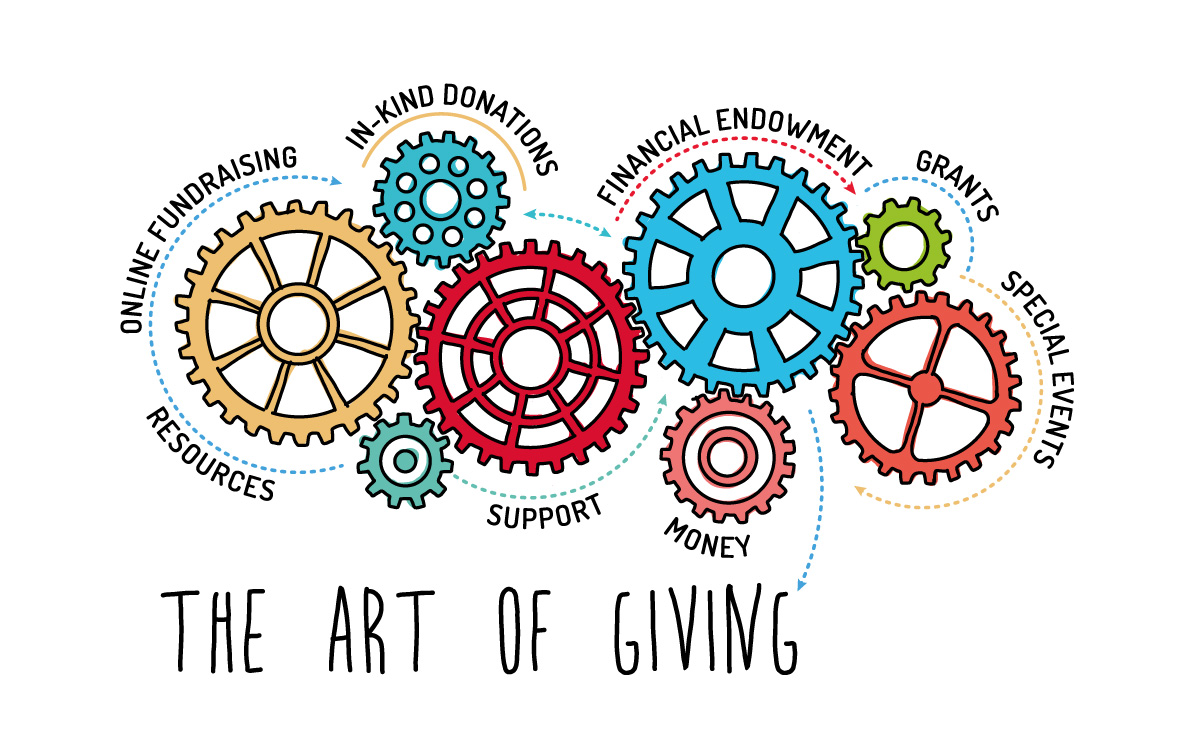Whether you’re Mother Teresa or Ebenezer Scrooge, you can’t deny it; Giving back to the community is a good thing.
Guess what else? It’s also good for business. Not only is it an excellent way to promote your products and services – and get great exposure while doing it – but most importantly, you get the undeniably pleasurable sense of helping others. I’m going to add one more motivation to that impressive list: charitable work will also open doors for opportunities to network with other professionals – people who could make a big impact on your career and your business.
I’d go a step further and say that giving back to your local community is even better, because you’re not only helping those people you know and love, but you’re helping those people who are (or who could become) your customers. And, of course, you’re making your community and the world at large a better place.
Americans like to think that they are generous people. In fact, according to the Science of Generosity survey, two-thirds of Americans agree that being generous is very important. But are Americans really generous? And speaking directly of American businesses, are they giving enough?
In 2015, Fortune 500 identified the twenty most generous American companies by cash contributions – which in total, amounted to 3.5 billion dollars. In the list are:
- Gilead Sciences ($446.7 million)
- Walmart ($301 million)
- Wells Fargo ($281.3 million)
- Goldman Sachs Group ($276.4 million)
- ExxonMobil ($268 million)
- Chevron ($225 million)
- JPMorgan Chase ($224 million)
- Bank of America ($168.5 million)
- Alphabet (Google) ($167.8 million)
- Citigroup ($142.8 million)
- Microsoft ($135.2 million)
- Merck ($132.5 million)
- Coca-Cola ($117.3 million)
- AT&T ($112.9 million)
- Target ($111.5 million)
- General Mills ($105 million)
- Pfizer ($93.3 million)
- Kroger ($76.5 million)
- PNC Financial Services ($72 million)
- Morgan Stanley ($62.5 million)
While these amounts might be impressive enough, does this money really help those in need? And how much charity is enough anyway?
Almost all businesses believe they are pioneers by placing a cause at the center of their marketing. And a lot of large corporations do have a history of giving back. For example, Walmart, through its foundation awards, grants scholarships and donates money. Johnson and Johnson recently pledged $1 million to an environmental cause.
According to a blog by Style Wise, “It’s not that charity is bad. But charity is also a Band-Aid placed on broken systems.”
Even though it’s really nice to know that these hugely profitable enterprises are helping to change people’s lives – charity, most especially that offered by big companies – delays permanent infrastructure and job development. While ugly sides of the story aren’t avoidable, huge businesses should realize that not every effort has to always include financial components.
Fred Koury, CEO of Smart Business Network Inc., stated some non-financial ways to give back:
Give more time. Aside from financial help, a labor boost can be of help as well. Donating employee time to do some basic cleaning and organizing won’t hurt.
Be an adviser. Sharing ideas and knowledge and offering advice to help a charity to navigate through its problems is also helpful.
Hire employees from the community. There are a lot of skillful people who are either physically or mentally disabled, who can be a valuable addition to companies. When you have job openings, try considering all candidates.
Offer services for free. Providing services for non-profit needs will go a long way. For example, consider donating unused machines (i.e. photocopy machines and other office equipment).
The posted question, “Are they giving enough?” or “How much charity is enough?” is getting pretty old. But if it should be answered, then maybe a better response is: Give just a little more.
Businesses in this country might be giving enough – enough financial help. But beyond that, it’s definitely questionable. When you give of your time and your resources, you can easily make a big impact in your community (and on your business).





